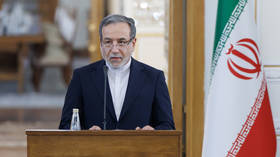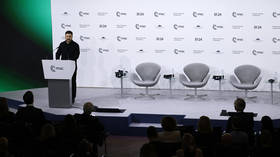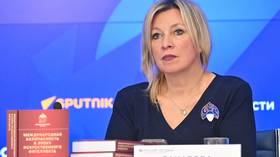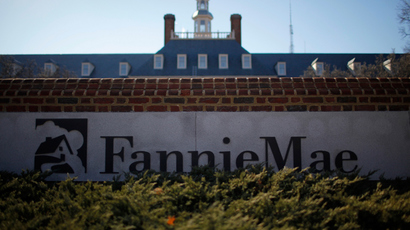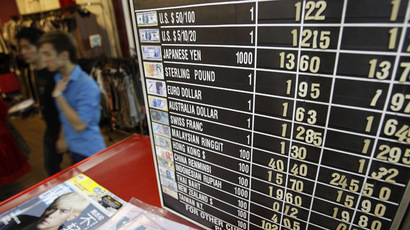London banker pleads guilty to fixing Libor, faces up to 10 yrs in jail
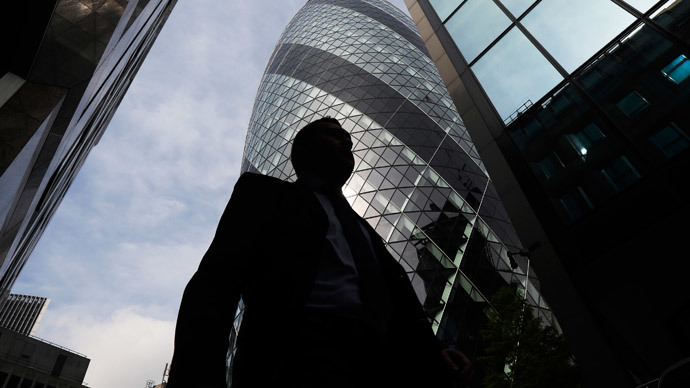
A senior London banker has become the first person to be prosecuted for fixing the London interbank offered rate (Libor), a scandal that resulted in billions worth of losses for savers as banks fraudulently boosted their profits.
The banker, who has not been named for legal reasons, faces up to 10 years in jail after being charged with fixing the inter-lending rate by the Serious Fraud Office (SFO).
The banker pleaded guilty to “conspiracy to defraud” by manipulating the rate at Southwark Crown Court on 3rd October.
“A senior banker from a leading British bank pleaded guilty at Southwark Crown Court on 3 October 2014 to conspiracy to defraud in connection with manipulating Libor,” the court said in a statement.
“This arises out of the Serious Fraud Office investigations into Libor fixing.”
The banker is the first person in Britain to be found guilty following the Libor scandal in 2012, in which the SFO discovered evidence of rigging the benchmark interest rate.
According to the SFO, between 2005 and 2008, traders working for several major banks including Barclays were asked to submit Libor positions that would put the bank in a favourable position, as well as other illegal activity such as colluding with other banks to manipulate the overall rate.
Other banks implicated in the scandal include the Royal Bank of Scotland (RBS), Deutsche Bank (DB), Credit Suisse (CS), JP Morgan (JPM) and Citigroup.
The Libor rate is used by banks to coordinate hundreds of trillions of pounds worth of loans and transactions in global currencies, as well as the trading of mortgages and derivatives.
The rate is also used to assess the health of a bank, as it is an indicator of how much one bank is willing to lend another, and how much it would charge for the loan.
However in 2012, the SFO and the Financial Services Authority (FSA) found that banks had been deliberately fixing the rate to paint a better image of their credit quality, and in so doing keep their profits artificially high.
The scandal was one of the biggest in global financial history, according to some economists.
"This dwarfs by orders of magnitude any financial scams in the history of markets," Andrew Lo, a professor of finance at the Massachusetts Institute of Technology (MIT) told CNN in 2012.

The international use of the Libor rate meant that top bankers, including former Barclays CEO Bob Diamond and chief operating officer Jerry del Missier, were forced to resign.
When questioned by the Parliamentary Treasury Committee, Diamond said he did not believe he was to blame for the interest rate rigging and that he would keep his £22 million leaving payoff from Barclays, despite a request not to take the golden handshake from UK Prime Minister David Cameron.
Diamond also told MPs that Barclays had submitted reports suggesting that interest rate rigging was taking place in 2008, but it was not acted upon by the then-Labour government.
Some analysts have argued that the rigging of the interest rate came following the 2008 global financial crisis, in which banks were given incentives to submit low interest rates to prevent negative speculation about the banks’ liquidity.
The unveiling of the scandal resulting in Barclays bank being fined £290 million in June 2012, while other multinational banks including Lloyds, UBS and ICAP have paid more than $3 billion worth of fines to British and American authorities as a result of an ongoing investigation into interest rate fixing.
Last week, Lloyds, of which nearly a quarter is publicly owned, fired eight staff and withheld £3 million worth of bonuses following their “unacceptable” actions which led to the bank being fined for its role in the Libor scandal.
“The board has been clear that it views the actions of those responsible for the misconduct … as being completely unacceptable,” said Lloyds’ chairman Lord Blackwell.
More than 20 financial institutions have been probed by the SFO following the Libor scandal and resulting in 17 being charged with fraud-related offences.
The first jury trial in the Libor investigation also involves a defendant charged by the SFO, and will take place in May 2015.




